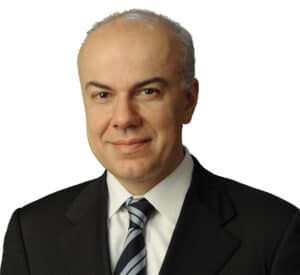Join JPI UE
Faq
FAQ
Please click here for the frequently asked questions we collected.
If you have an additional questions you are welcome to mail us at info@jpi-urbaneurope.eu
Edoardo Croci is the new chair of the Urban Europe Research Alliance (UERA). In this interview he shares reflections on the work ahead, the pandemic’s effect on researchers’ work and on Italian cities: “UERA represent a great opportunity for networking and innovating among universities and research centres, and to link with other stakeholders in the policy arena”.
– What is your main interest in urban research?
As an environmental economist at Bocconi University, Milan, I have always considered cities a very interesting and promising research area. Cities concentrate physical, human and social capital, and at the same time showed shortcomings in natural capital. Climate change is putting in evidence the vulnerability of urban areas and indicated the need of a path to make them more sustainable. More recently, the Agenda 2030, through Goal 11, and the new Urban Agenda put cities at the centre of global policies. Policies and measures targeted to climate, circularity, natural capital, sustainable mobility, resource, and energy efficiency find ideal living labs in cities. At the European level several research programmes, including Horizon 2020 (and Horizon Europe in perspective) are targeted to urban environments. A multidisciplinary or even inter-disciplinary approach is needed to provide effective results in urban research. UERA represent a great opportunity for networking and innovating among universities and research centres and to link with other stakeholders in the policy arena.
– How has the pandemic affected researchers in UERA?
Covid-19 pandemic has severely hit cities because of concentration of people and activities. Some researchers theorized the end of urbanization and the comeback of rural areas. I do not think this is the case, because economies of agglomeration still overcome diseconomies of agglomeration, but it is clear that we need to innovate the design and use of urban spaces and services. For example, the value of open spaces and of natural resources is now more clearly appreciated. This opens huge opportunities of research in several disciplines to assess and project new urban features. Actually, new digital technologies and new materials open the possibility of choices to rethink the built environment and human connections.

– How are Italian cities doing during the pandemic and what do you foresee for after the pandemic?
The pandemic surprised international organizations, starting from the WHO, and national governments. Emergency responded, like lockdowns and curfews have been adopted in all countries. Support to families and firms have caused increases in public debts. Now it’s the turn of recovery measures. Cities have played a marginal role in this context, as Mayors appeared unprepared in all Italia cities. In Milan, for example, measures to fight pollution were relaxed to allow people use cars instead of public transportation. Now we need a new phase where innovative policies and measures can deal with health, security, and the environment at the same time, keeping into account social and economic impacts. Young generations appear more conscious about the need of such a jump.
– What areas of urban research are most relevant right now?
Considering my previous answers, I would put health in the first place, putting together different disciplinary perspectives. At the same time, health aspects need to be investigated in connection with several other research areas: urban planning, mobility, the environment, public services housing, etc. Living spaces and working spaces need to be redesigned and so mobility. It’s an overall transition to a new urban model. Research can support policy decisions at several levels of governments and industrial innovation in several sectors at this purpose.
– What are your wishes for the new urban partnership?
UERA can play a crucial support role to JPI Urban Europe in the Driving Urban Transitions roadmap. Cities need to pass from adaptation to transformation strategies to reduce vulnerabilities, increase resiliency and foster sustainable growth. The Green Deal and Next Generation EU constitute a powerful framework at the European level at this purpose. UERA can contribute to the three partnership pillars (the 15 minutes cities, Positive Energy Districts and greening/ circularity transitions) building a knowledge hub targeted to researchers, policy makers and citizens. In fact knowledge is the basis of effective policies and informed choices. This means that the partnership roadmap should be able to lead to real changes in urban policies. From scientific research to capacity building, up to best practices diffusion I see a very relevant role for researchers and experts.

>> Learn more about UERA’s ambitions and activities
>> UERA seminar on 5 May: Towards Co-creation of Public Services at the local level – innovative concepts and practice across Europe